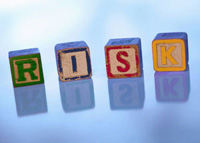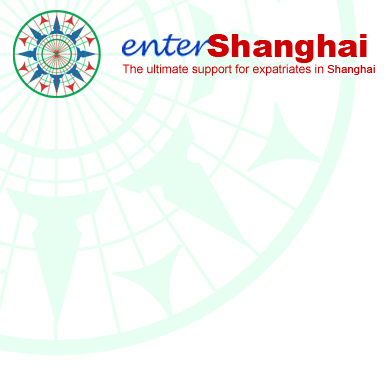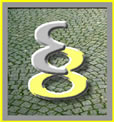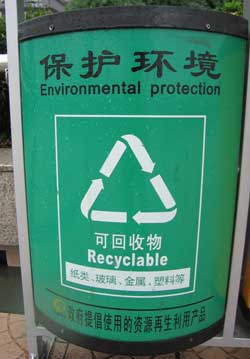
Risk Investigation for Shanghai

Shanghaiis one of four municipalities that are directly administered by the central government (the others are Beijing, Chongqing and Tianjin).
District and county representatives are elected to its own people's government, the Shanghai People’s Congress, which runs the day-to-day affairs of the city.
The Shanghai People’s Congress elects a mayor to the National People's Congress (NPC), where ultimate authority rests.
The mayor of Shanghai is considered a powerful position, especially as several mayors have gone on to leadership roles in Beijing, but the true power rests with the Party Secretary. Han Zheng is Shanghai's mayor, while the immediate past mayor, Chen Liangyu, is Party Secretary.
| Website: | |
| Shanghai Government | http ://www.shanghai.gov.cn/gb/shanghai/ shanghai |
| US government on China | http:// www.tradeport.org/research/index.html |
| Asia Intelligence Service | http://www.asiaint.com/ |
| South Asia Intelligence Reviews/South Asia Terrorism | http://www.satp.org/satporgtp/sair/ |
| Heritage Foundation | http://www.asianstudies.org/ |
With 1/6 of China’s GNP, Shanghai is the economic engine of China, known locally as `the dragon’s head’. With its buzzing international financial districts, home to the nation’s major stock exchange, a high-tech development park and export processing zone - the city is well on its way to its goal of becoming a global centre of finance and trading by 2010.
Since the economic reforms and opening up of the 1990s, Shanghai has welcomed foreign investment, and has put in place a fairly sophisticated infrastructure to receive it. The city has China's most skilled labor force, with a good supply of college educated workers and foreign-education MB As.
Shanghai is the nation’s principal industrial base and is also a major producer of heavy industry (power plants, refineries, and China’s leading producer of iron and steel). Other major sectors include textiles, and electronics and cars - both General Motors and Volkswagen are major players - and IT. As China’s leading port, Shanghai handles over US$ 300 million in imports and exports daily, the bulk of the sea trade for the Central China region. Shanghai's major trading partners are Japan, the United States, Germany, Hong Kong and the U.K.
Tourism, both overseas and domestic, is another major, fast-growing sector.
Shanghai has a low crime rate, particularly for a mega-metropolis. There is very little violent crime, particularly against foreigners. But petty crimes like pickpocketing do happen in crowded areas like train stations, markets and on busy streets. There are also scams perpetuated against foreigners and tourists.
One of the better-known scams involves locals asking foreigners to dinner, in order to `practice their English’. At the meals’ end, an extortionate bill arrives, with the local having disappeared, or simply professing that they’re `too poor’ to pay.
| Website: | |
Frequently Asked Questions : Legal FAQ about the criminal procedure of China |
http://www.fl365.com/ |
Traffic Accident : Regulations of Shanghai Municipality on Road Traffic Administration |
http://www.chinalaw114.com/ |
| http://www.china.org.cn/ | |
Ministry of Justice |
http://www.cei.gov.cn/ |
You are legally required to carry identification with you, either your passport or resident card. Photocopies will do, so that if you are questioned by the authorities, you have immediate proof of residence, and legal status.
Chinese laws prohibit public demonstrations without a valid permit from local Chinese Public Security Bureau.
Pornography as well as any material considered "detrimental to China's politics, economy, culture, and ethics" is not permitted to enter the country, and will be seized.
Foreigners are permitted to practice their own religions in China, but religious proselytizing is an offense in China. This includes bringing in religious materials that may be considered more than necessary for personal use, as well as distributing religious material and proselytizing. Foreigners who engage in these activities may be detained, fined and deported; if the religious organization in question is one under fire (such as Falun Gong), you may be taken into custody.
China does not recognize dual nationality. Foreigners who hold Chinese and foreign passports may have difficulty entering China on foreign passports (and entering China on a Chinese passport means that the individual is not entitled to the right of consular access and protection).
The children of P.R.C. nationals born in China are not recognized by China as foreign citizens, even when one parent is foreign. Children born overseas to P.R.C. nationals who are not citizens or permanent residents of that country are similarly considered P.R.C. citizens in China and in both cases, are required to use Chinese travel documents when entering and leaving the country.
Do not offer, sell, give, administer, transport, deliver or distribute any type of drugs. All prescription drugs should be in their original packaging, with prescription.
The following substances are drugs under Chinese law:
| Info: |
| Amphetamines or "Speed" |
| Cannabis or Marijuana |
| Ecstasy (MDMA) |
| Heroin |
| Inhalants or Solvents |
Possession or Setting off of Firecrackers
Rules of conduct by which Shanghainese are supposed to live:
| Info: | ||||||||||||||
|
Pornography is illegal in China. Homosexuality, while not illegal, was only recently downgraded from a mental illness. Nevertheless, Shanghai has a handful of high-profile local homosexuals, and gay expatriates are able to be open about their sexuality and lifestyle choices. Conservatism should be the rule, however; China is still a conservative society, and public displays of same-sex affection are best avoided.
See also: Same Sex Partners
Basic health care is perfectly adequate in Shanghai, but complicated health issues are best handled abroad. Most expatriates select one of the city’s Western-staffed and managed clinics or hospitals (with five-starrices) or designated foreigner’s clinics in local hospitals with English-speaking personnel, but facilities and treatment are limited at both.
Hospitals without designated foreigner's clinics will treat foreigners, but only in emergencies. For more serious / complicated issues, patients usually return to their home countries or seek treatment in Hong Kong or Bangkok.
Visitors to Shanghai should therefore have health insurance that includes repatriation (or at least travel to Hongkong for emergency treatment).
Similarly, all the medication you might need - over the counter and prescription - should be brought with you, as not all medication can be found in Shanghai.
See also Health
| Website: | |
Center for Disease Control |
http://www.cdc.gov/health |
| Infectious Diseases | http://www.ivi.org |
More info |
http://www.healthinasia.com/ |
| http://www.healthinchina.com/ | |
| http://www.search.asiaco.com/China/Health | |
| http://www.worldroom.com/ | |
| http://www.autumnleaves.com.cn/ | |
Shanghai's weather is extreme at best; cold, icy winters and boiling, humid summers. Obviously this brings a whole host of health issues you need to be mindful about - especially heat exhaustion. So many westerners spend their first hot Shanghai months feeling like they are on a ship simply because they fail to drink enough water and spend too long in the sun. It is common for expats to suffer from colds and flus in their first year in Shanghai while their immune systems adjust to the new environment.
| Info: | |||||||
|
You cannot drink the tap water in Shanghai - it is foul and will give you instant diarrhea. Most expats do not use it for anything but bathing and showering, using bottled water for everything including preparing food, making tea and coffee and even brushing their teeth.
It is likely that you will suffer from some diarrhea while in Shanghai, but being careful about where you buy your meat will go a long way towards keeping you healthy. If you know you have a week stomach then you should also avoid some street foods.
| Info: | ||||||
|
| Info: | ||||||
|
STDs, including AIDS, are on the rise in China, as the sexual revolution here is quite recent. You will be tested for STDs when you take your government residence permit health examination and will be deported if you are found to be carrying one. So make sure you are clear before entering the country and take plenty of precaution.
| Info: | |||||
|
| Website: | |
Medscape |
http://www.medscape.com/ >infectious diseases |
International Vaccine Instititute |
http://www.ivi.org |
Australia Health Government |
http://www.health.gov.au/ >A-Z guide>overseas briefs |
| Info: | |||||||||
|
It is a fact that environmental problems which hit developed nations over a spread of 100 years are popping up in China over a concentrated 20-year period. While the urban population grows rapidly the environmental infrastructure in many cities is unable to keep pace.
See here for a United Nations article on pollution in Shanghai
In Shanghai refuse is disposed of daily, and the city has started a recycling program in some neighborhoods. The city claims that industrial water pollution is under control, with 100% of effluent from large factories being treated and 70-80% of smaller factories treated. Only 28% of residential wastewater is recycled, but plants are now under construction to remedy this.
Photo:enterasiaArt
 Within a decade the city hopes to achieve a potable drinking water supply. The most common complaint received by the Environmental Protection Bureau, however, is noise pollution, created by heavy traffic, trucks at night, construction, and even the vendors ringing their bells
Within a decade the city hopes to achieve a potable drinking water supply. The most common complaint received by the Environmental Protection Bureau, however, is noise pollution, created by heavy traffic, trucks at night, construction, and even the vendors ringing their bells
| Website: | |||||||||||||
|
|||||||||||||
.
| Website: | |
| Asia Risk | http://www.asiarisk.com/ >go to library |
| Heritage | http://www.heritage.org/index/ |
| Country Profile | http://www.hawaii.gov/dbedt/ert/cp/chinahon.html |
| Privacy and Human Rights | http://www.gilc.org/privacy/survey/ |
| Judicial System | http://travel.state.gov/china_legal.html |
| Police Force | http://www.shanghai.gov.cn/gb/shanghai/node2314/index.html |
| Legal System | http://www.llrx.com/ |
| Constitution | http://www.oefre.unibe.ch/law/icl/ch__indx.html |
| Ministry of Foreign Affairs | http://www.fmprc.gov.cn/chn/index.html |
| US Department of State | http://www.state.gov/ |










